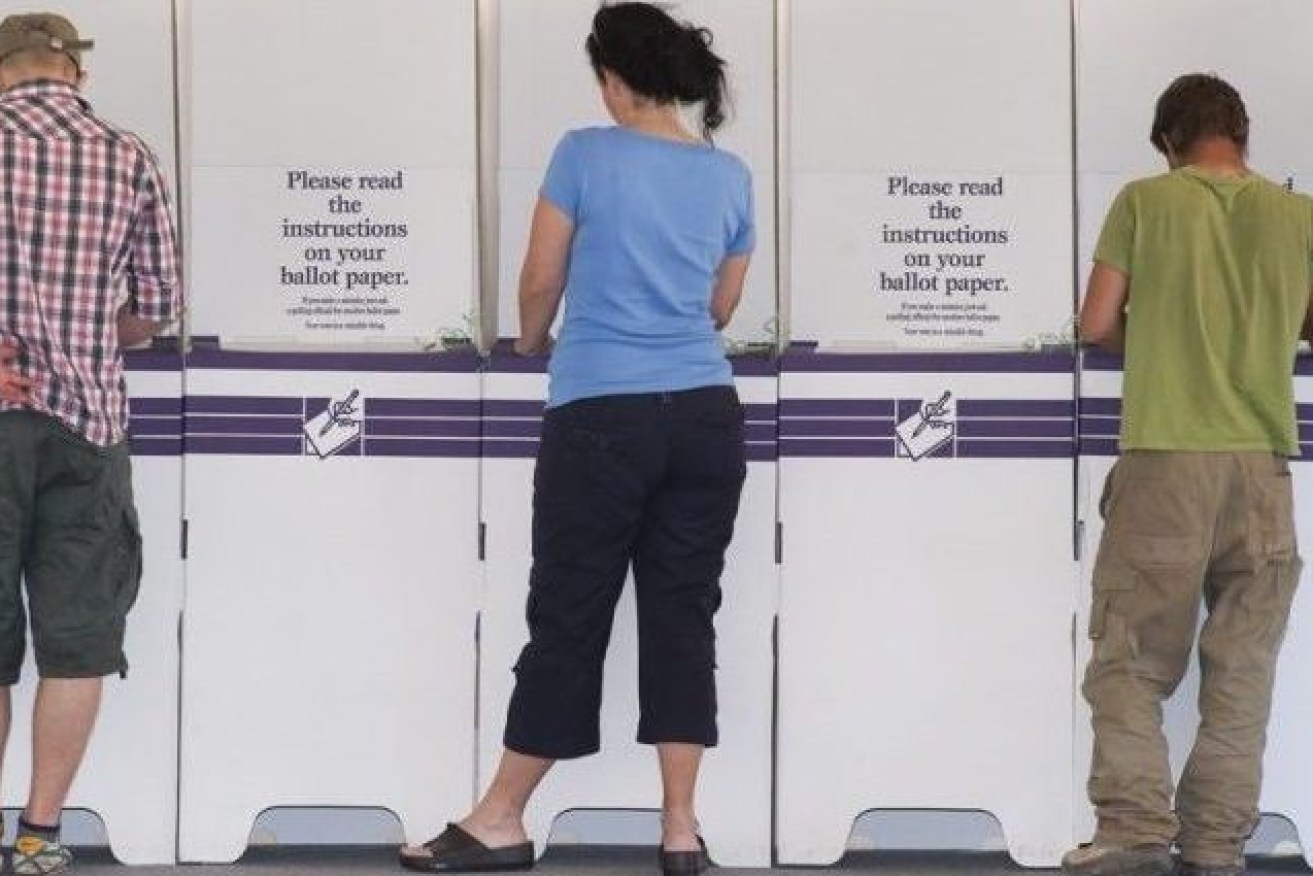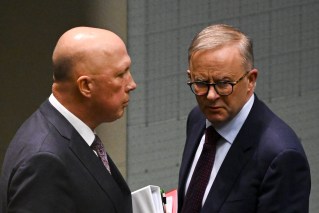Why our infatuation with ‘horse race’ polling puts so much faith in nothing
Horse race political reporting is the norm these days but has it outlived its usefulness? Dennis Atkins, a one-time horse race addict, thinks so. He sets out the case against this type of journalism.


A record number of Australians have registered to vote in the referendum for an Aboriginal Voice to Parliament . (Image:AEC)
As someone who dislikes and avoids the first person column – you know, those “smarter than anyone”, “I believe this, I know that” contributions – this is not an easy piece to write.
But, trust me, this is going to be a very rare exception.
So here goes. My name is Dennis and I’m a horse race political commentary junkie.
I’ve been churning out the “who’s in the lead, who’s gaining on the front-runner and who pays the rent” style of columns for 40 years.
In the pages of The Melbourne Sun-News Pictorial, The Adelaide Sunday Mail, The Advertiser, The Courier-Mail, The Hobart Mercury and, more recently, in online publications such as Crikey, the New Daily, InDaily and the best of the lot, InQueensland.
It’s been as much fun as you can have in journalism, covering the highs and lows of other people’s careers without losing a pay packet.
Hell, if you believe some of the targets of these columns I was a participant in their demise. Blood on the Typewriter as an old Adelaide journo mate Robbie Brechen called his compelling bio of genius Adelaide Hills scribe Philip White.
Now, after those four decades of addiction, when editors have always asked for more, I’m questioning the whole premise of the exercise.
The case against horse race political commentary has been building for years – led by academics in the United States and Britain – but it has, like many things in this area of study, gained pace through the advent of Donald Trump and his brand of populism.
Horse race political journalism is the shallow end of the craft. It’s easy to do, carries no burden in terms of input or consequence and can spawn a day or so of equally lazy follow ups.
It is usually based on polling. A poll of inconsequential quality is used to measure the possible outcome of a looming political contest – usually on the fundamental metrics of voting intention and leadership approval/disapproval.
This poll is the story. In the Australian context it tells us – to use to a common current example – that Labor is ahead but has slipped in popularity from its post-last election position.
There’s also a segment of the research which suggests Labor’s Anthony Albanese is more/less popular than he was and the gap in the “net negative” approval takes between the prime minister and LNP leader Peter Dutton is narrowing or widening.
This all might in part or whole be of interest and have some influence on where events are going but any basis is flimsy at best.
It is always worth remembering and repeating that opinion polling is no more than what it is – the sampling of opinion at a moment in time on a single issue or confined basket of issues.
It is not a predictor of what will happen or even a particularly or necessarily accurate measurement of what is happening or believed by an electorate or wider community at a specific time.
You can’t say Labor will win because it is ahead any more than a week out from an election and even in that last week any margin outside the sampling error factor – regularly 3 or so points – must be viewed as unreliable.
Because of that trick known as a sampling error you have to take most point-in-time surveys with some salt – from a grain or two to a shaker.
The fundamental “sampling error” potential stems from the size of sample: a survey of 200 people in a state of three million voters has a far greater possible error than field work covering 2500 respondents.
However, there are also other factors than drive the accuracy of polls and therefore increase or reduce the possible error in the sample.
Weighting of polls counteract the otherwise likely tendency to over or under represent people who are easier or harder to reach. This might be determined by age, geographic, gender or ethnic background.
To compensate for this pollsters try to ensure their samples reflect the demographics of the population they are surveying. However, while weighting is essential to avoid bias, it also can enlarge the margin or error.
Countering this is what’s known as poll design. Pollsters who sign up to the Australian Polling Council agree to make full disclosure of the design of their polls, detailing the weighting used and the impacts on a fully explained sample error potential.
This is all based on the premise that a fully informed readership is the only way to make horse race political reporting have a modicum of transparency and honesty.
If a poll you’re reading doesn’t have all of this data included in the actual reporting or on an easily accessible website there’s only one place for this survey: the waste paper or digital bin.
Other factors counting against horse race polling are that it contributes to the prevalent and increasing distrust in politicians – if all the news is focused on the competitive nature of contests and doesn’t delve into the issues voters actually talk about, people will believe politicians don’t care about things like health and education.
Right now the media are regarded as among the least trustworthy of any institutions in society. In part driven by the “rip, shit and bust” nature of reporting (also known as “if it bleeds, it leads”) and the hyperdrive provided by social media, this has created a doom loop of negativity and crushed credibility.
The media also spin an outcome for themselves that create an uninformed electorate. Pages of stories on horse race aspects of elections and little if any examination of what is at stake in any contest means the voters are ill-informed and slip into not caring.
It’s a self perpetuating and self fulfilling problem at once. The ill informed nature of so much political reporting – fed by the horse race obsession – creates an electorate which really doesn’t care because they do not believe anything has any meaning or any election outcome has any consequence.
Perhaps the very worst example of horse race political journalism is the “pub test” which is having a gallop around the track right now.
If there is a pub test – and there isn’t – it doesn’t pass its own confected criteria.
The Australian Financial Review’s now retired columnist Joe Aston said – in the context of the demise of Australia Post chief executive Christine Holgate – one thing was demonstrated beyond dispute: “the pub test” – a vapid fetish of Australia’s political class – must be decommissioned.
“A public bar is the very last place to ascertain what fair and reasonable people think is fair and reasonable. Opinionated barflies trade voraciously in feeble rationale and condemn the impeached with nominal heed of facts, let alone of their context,” wrote the brilliant Aston.
“The pub is a trough of ignorance. The federal Parliament is a domain of rank cynicism. What could be the constructive purpose, therefore, of one taking the moral temperature of the other?”
Let’s make a 2024 resolution to leave the pub test in the mythical pub.
The fundamental criticism of horse race political journalism is the tendency to give emphasis to colour and movement, to drama and shock, over anything or substance or consequence. Substance takes a back seat.
Perhaps the best snapshot of the shortcomings of horse race political journalism is in a Twitter thread from New York University academic and journalist Jay Rosen who posed these prescient questions:
”A very weird thing about horse race or ‘game’ coverage is that it doesn’t answer to any identifiable need of the voter.
“Should I vote for the candidate with the best strategy for capturing my vote? Do I walk into the voting booth clutching a list of who’s ahead in the polls.”
Essential questions that should at the very least asked at the beginning of this election year.












